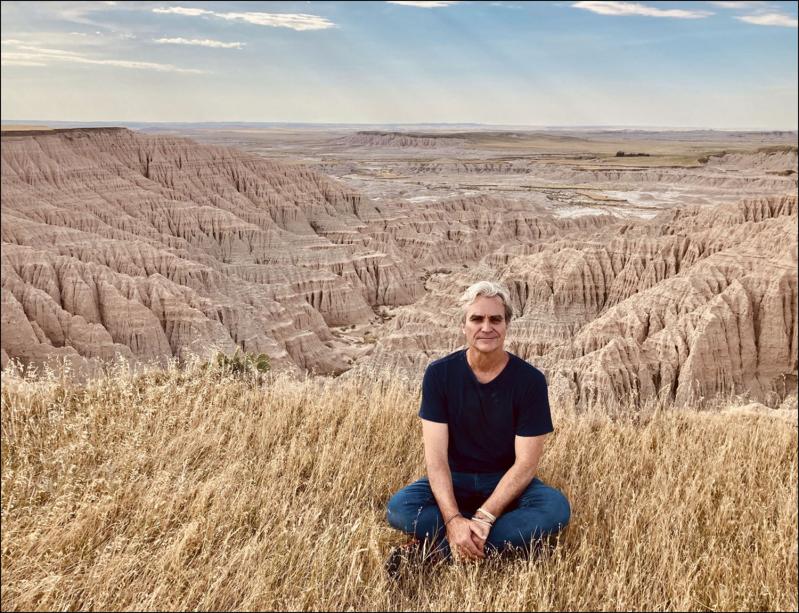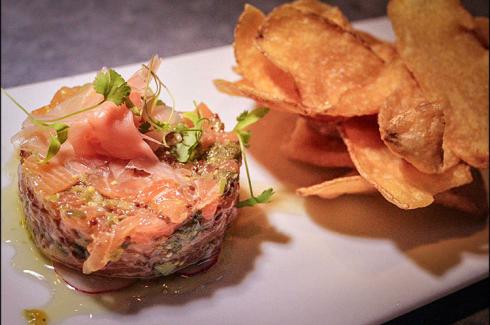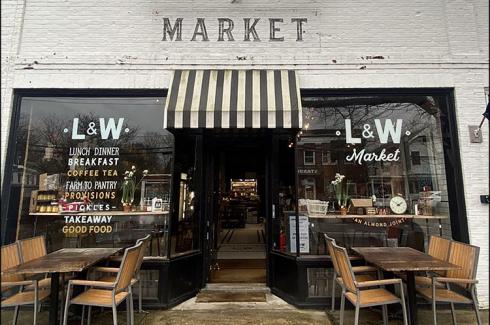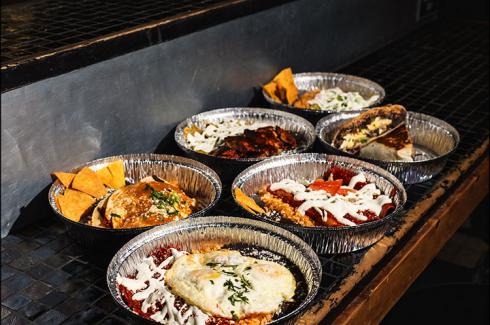In the year 2025, where have all the protest songs gone? Two scholars of music will ponder this question, and the history of the protest song, on Sept. 6 at 5 p.m. in the next installment of the Shelter Island Library’s Summer Dialogue series, which because of construction will take place at Shelter Island’s American Legion Hall.
David Browne and Tom Junod are friends, accomplished writers, and music fans. Mr. Browne is a senior writer at Rolling Stone and a veteran music journalist, and Mr. Junod has written for publications including Esquire, Life, Sports Illustrated, and ESPN the Magazine.
For the past six years, they have addressed a particular topic in the Summer Dialogue series. Last year, it was summer songs. This year, a few causes and conditions led them to the protest song. “I think this sprang from seeing ‘A Complete Unknown’ over the winter,” Mr. Browne said of the biopic that portrays Bob Dylan in his early career, often alongside renowned troubadours including Woody Guthrie, Pete Seeger, Johnny Cash, and Joan Baez.

“It triggered thoughts with us,” Mr. Browne said, “especially once Trump’s second-term inauguration happened. We were thinking, ‘Where are the protest songs of today? Are there any? If not, why not?’ It made us think of the entire history of the genre, which goes back a century, but especially the ’50s and ’60s — Dylan, Woody Guthrie, Pete Seeger, leading up through early hip-hop.”
Another catalyst, Mr. Junod said, was Mr. Browne’s 2024 book, “Talkin’ Greenwich Village: The Heady Rise and Slow Fall of America’s Bohemian Music Capital.” Current events, of course, also led them to the topic. “You talk to a lot of people who are unhappy about the current political situation,” Mr. Junod said, “but that is not expressed in music. Most music, especially pop, is very much just about broken hearts and whose fault it is. We keep wondering, when is a protest song going to be on mainstream radio? When is one going to be a hit? A lot of protest songs we grew up with are really popular, anthemic songs. What happened? What’s changed that’s not there anymore?”
Mr. Browne and Mr. Junod will trace the history of the protest song in the modern era, and why and how prevalent it was. “For many years you could turn on the radio, FM or Top 40, and hear ‘If I Had a Hammer’ by Peter, Paul, and Mary [co-written by Seeger], ‘The Message’ by Grandmaster Flash, ‘Born in the U.S.A.’ by Bruce Springsteen,” Mr. Browne said. “You could hear protest songs that penetrated the mainstream.”
Both he and Mr. Junod pointed to “Ball of Confusion (That’s What the World Is Today)” by the Temptations, released in 1970, a year before the appearance of other of Mr. Junod’s favorites, “Ohio” by Crosby, Stills, Nash, and Young, and Marvin Gaye’s “What’s Going On” album. “Just a bundle of songs that came out at the last time of great political divisiveness in our country,” he said, “and they stuck with people for 50 years. I would love to hear protest songs on the radio again.”
“I think there is a stereotype of the protest song as this incredibly earnest, humorless folk song from the ’60s,” Mr. Browne said. “I think what we’re going to try to show is, while there is some truth to that, the protest song has permeated all different genres of music — R&B, rock-and-roll, hip-hop — whether it’s ‘War’ by Edwin Starr, ‘You Haven’t Done Nothin’’ by Stevie Wonder, which is about Nixon, ‘Big Yellow Taxi’ [by Joni Mitchell], ‘Saturday Night Special,’ an anti-gun song [by Lynyrd Skynyrd], ‘Sunday Bloody Sunday’ by U2, ‘Fight the Power’ by Public Enemy. These are songs that completely bust out of that stereotype.”
He went on to cite more recent examples, such as Green Day’s “American Idiot” (2004), Kendrick Lamar’s “Alright” (2015), and Beyonce’s “Freedom” (2016), to show that protest songs “have adapted to the times, not just lyrically but musically. They’re not just stuck in the ‘60s and about not wanting to sign up for the draft.”
Last Thursday, he posted a piece on Rolling Stone’s website about Jesse Welles, an Arkansas musician who “has all these viral protest songs about modern times.” But given this fraught moment in the United States, why is he the exception? “We’re going to have this talk about the legacy of the protest song, the importance of it in the culture, and where it stands now,” Mr. Browne summarized.
“We try to bring a lot of humor to what we do,” Mr. Junod added. “Protest songs are many things — funny, not generally. The challenge, this year, is to make protest songs — and also the dearth of protest songs — somehow funny.”




